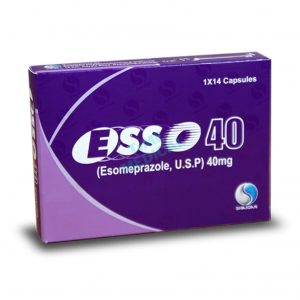Description
Overview
Brisdel cr is antidepressant and belongs to selective serotonin reuptake inhibitors (SSRIS). Brisdel cr is used to treat obsessive-compulsive disorders and panic disorders. Brisdel cr is a phenylpiperidine derivative that is prepared by chemical synthesis. Brisdel cr is optically active and the nantiomer is used clinically Brisdel cr is not available in any combination preparations Brisdel cr is administered orally
Contraindication
failure Mania Hypersensitivity Seizures
Side Effects
The severe or irreversible adverse effects of Paroxetine, which give rise to further complications include Convulsions. Urticaria, Glaucoma, Impotence. Angioedema, Extrapyramidal symptoms, Myopathy, Mania, Tremors Oro-facial dystonia, Galactorrhea. The signs and symptoms that are produced after the acute overdosage of Paroxetine include Tachycardia Coma, Dry mouth, Fever Dilated pupils, Sweating Irritability. Tremor, Nausea & vomiting. Somnolence, BP changes, Involuntary muscle contraction. The symptomatic adverse reactions produced by Paroxetine are more or less tolerable and if they become severe, they can be treated symptomatically, these include Flatulence Weakness, Dizziness, Headache, Nausea, vomiting, Anorexia, Diarrhea, Anxiety, Palpitation, Constipation, Insomnia, Nervousness, Sweating, Blurred vision, Urinary retensionX, Rashes, Confusion, Jaundice, Hallucination, Hypotension Diaphoresis, Postural hypotension, Elevation of liver enzymes, Thrombocytopenia, SomnolenceX, Decrease in libido, Agitation, Taste disturbances, Ejaculatory failure, Increased intracranial pressure, Vasodilation, Dreams abnormality. Yawning Xerostomia, Ejaculatory disturbances, Hyponatremia, Skin bleeding, Mucous membrane bleeding. Suicidal attempts, Myoclonus, Hyperreflexia
Warnings
Paroxetine should be used only if clearly needed during pregnancy or lactation. It should be used with caution in patients with pre-existing kidney disease, liver disease seizure disorder, thyroid disease, history of substance abuse or if have any allergy, in patients with a history of mania, to patients receiving oral anticoagulants, in cardiac patients in epilepsy, narrow angle glaucoma, patients already receiving neuroleptics patients treating with drugs that give an increase risk of bleeding and in patients with a known tendency for bleeding or those with predisposing conditions






Reviews
There are no reviews yet.